Caernarfon Castle is so breathtaking r/Wales
Caernarfon Castle ( Welsh: Castell Caernarfon; Welsh pronunciation: [kastɛɬ kaɨrˈnarvɔn]) is a medieval fortress in Gwynedd, north-west Wales. The first fortification on the site was a motte-and-bailey castle built in the late 11th century, which King Edward I of England began to replace with the current stone structure in 1283.
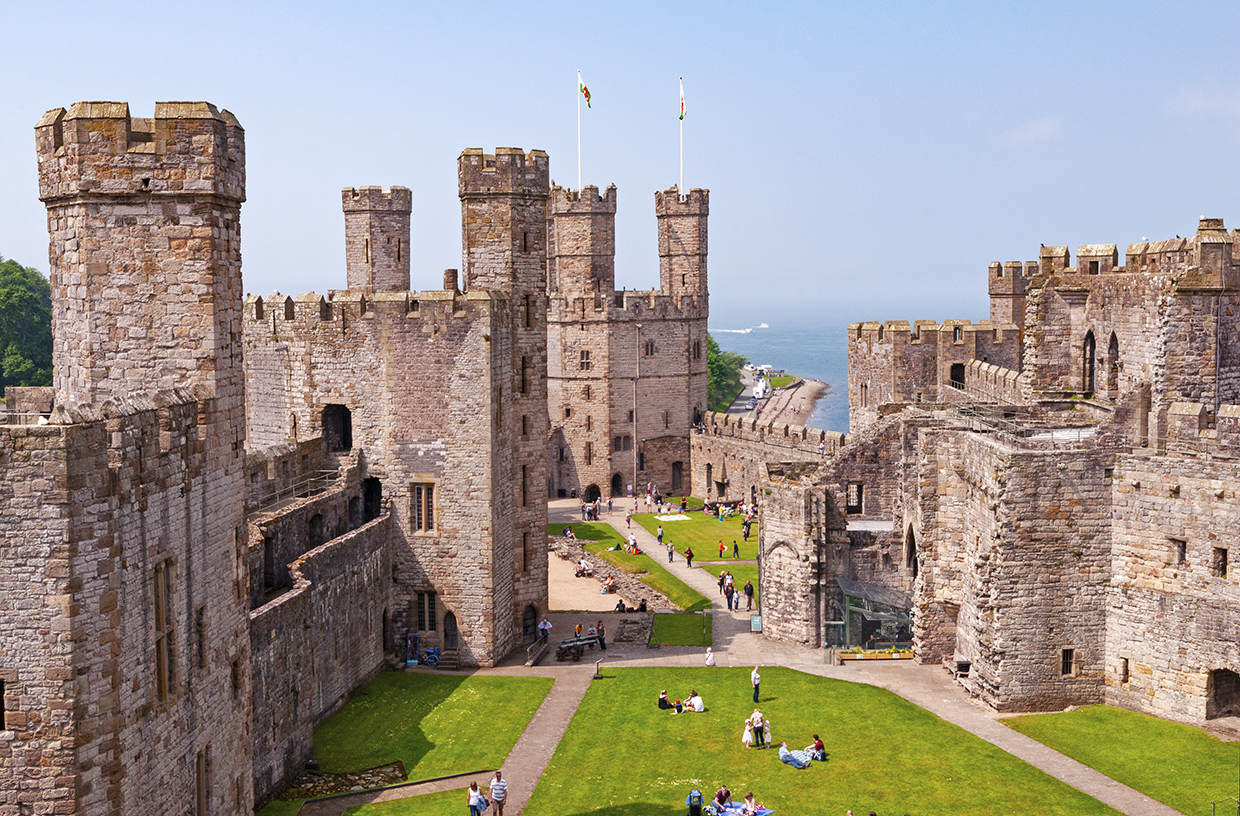
Why You Need to Visit the Impressive Caernarfon Castle, Wales • Wander Your Way
Caernarfon is a town located in Gwynedd, in the northern part of Wales. It is situated on the west end of the Menai Strait, which separates the Welsh mainland from the Isle of Anglesey. The strategic significance of the area was evident even before the Medieval period.

Caernarfon Wales 6 Reasons to Visit this Fascinating Town • Wander Your Way
Caernarfon Castle, also known as Carnarvon Castle, Caernarvon Castle, and Castell Caernarfon, is one of the top tourist attractions in all of Wales and has remained like that for many, many years. So, where is Caernarfon Castle and how did it become one of the greatest buildings of the Middle Ages? The early history of Caernarfon Castle
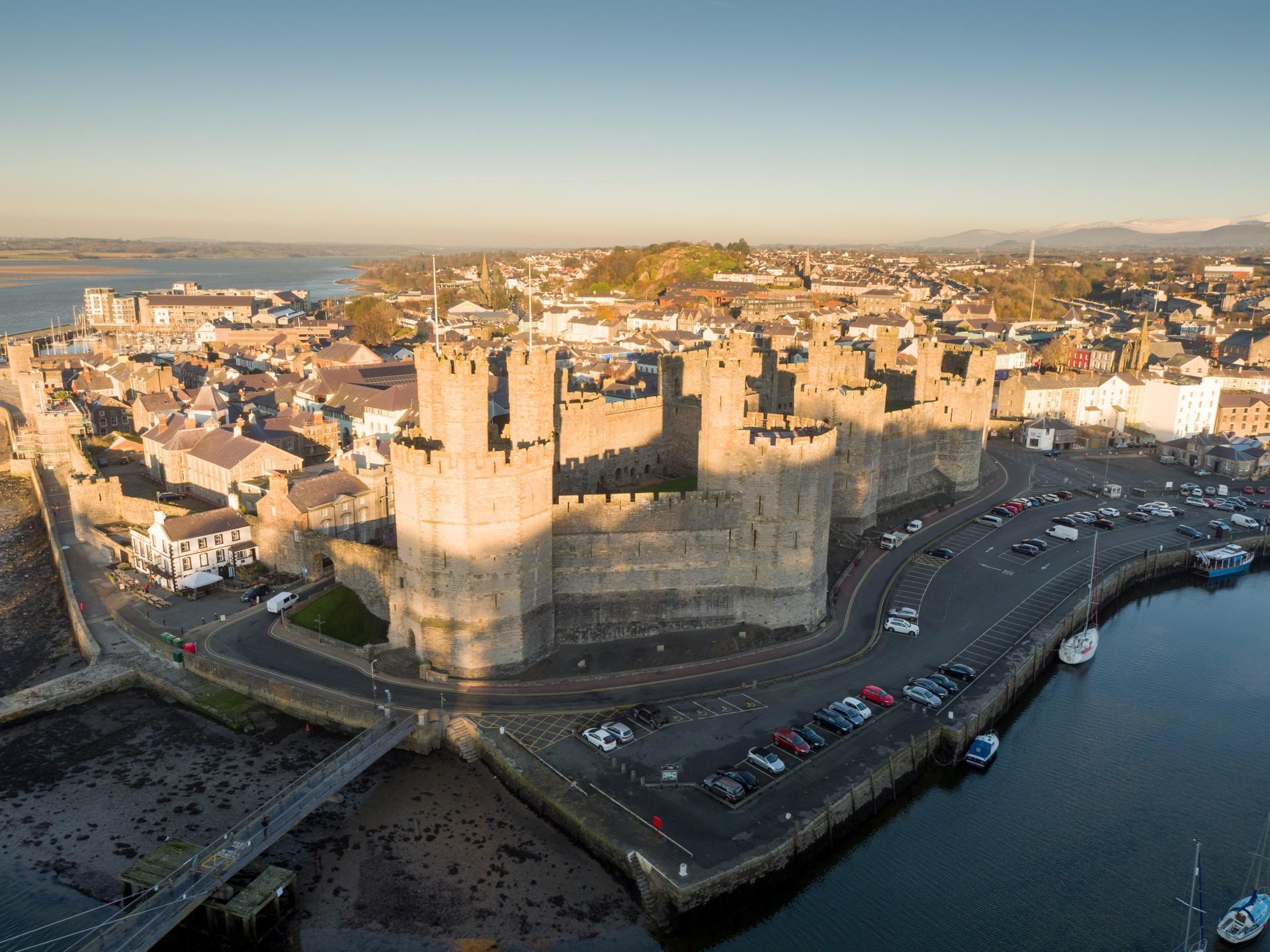
Caernarfon Castle (Cadw) VisitWales
Caernarfon Castle remains a Crown property but is now maintained by the Welsh Government's historic environment service Cadw. Caernarfon Castle was built at great expense by Edward I. Work commenced in 1283 and the final phase was only completed in 1330. It formed part of the iron ring of castles stretching across the coastal region of North.
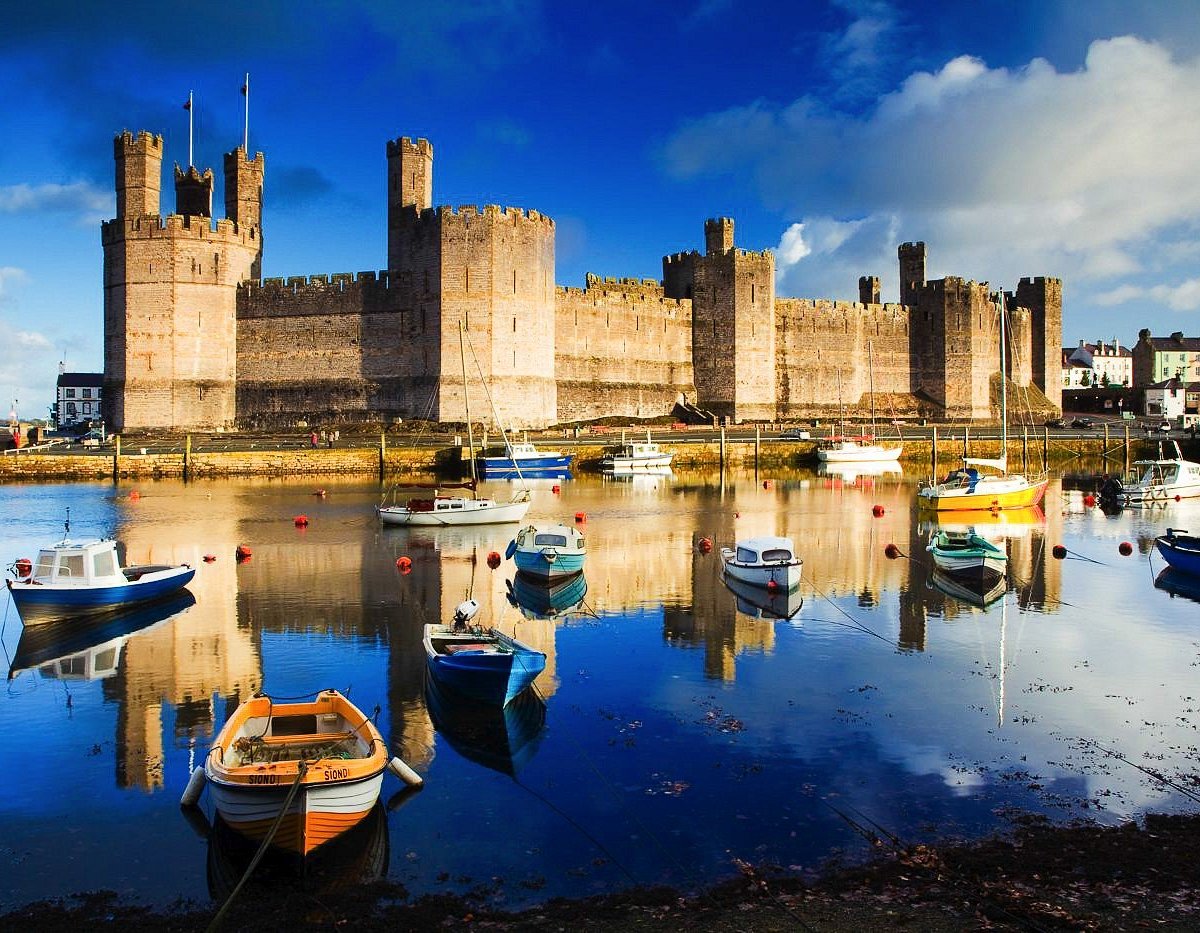
CAERNARFON CASTLE 2022 tutto quello che c'è da sapere
The Royal Welch Fusiliers Museum is housed in two towers of Caernarfon Castle. In it you will find a wealth of original exhibits, supported by film, sound and models, which tell the story of over 300 years of service by Wales' oldest infantry regiment, in peacetime and in war, all around the world. Find out more Visit Caernarfon Castle

Caernarfon Castle Wales Castles Photo (789296) Fanpop
Caernarfon Castle (Welsh: Castell Caernarfon), often anglicized as Carnarvon Castle, is a medieval fortress in Caernarfon, Gwynedd. There was a motte-and-bailey castle in the town of Caernarfon from the late 11th century until 1283 when Edward I of England began replacing it with the current stone structure. The Edwardian town and castle acted as the administrative centre of North Wales and as.

Caernarfon Castle
History. The first medieval timber castle in Caernarfon was erected at the end of the 11th century by the Norman invaders who conquered the territory of North Wales. It was created on the initiative of Hugh d'Avranches, Earl of Chester, as a motte and bailey structure. The Welsh regained Gwynedd along with the castle at Caernarfon in 1115.
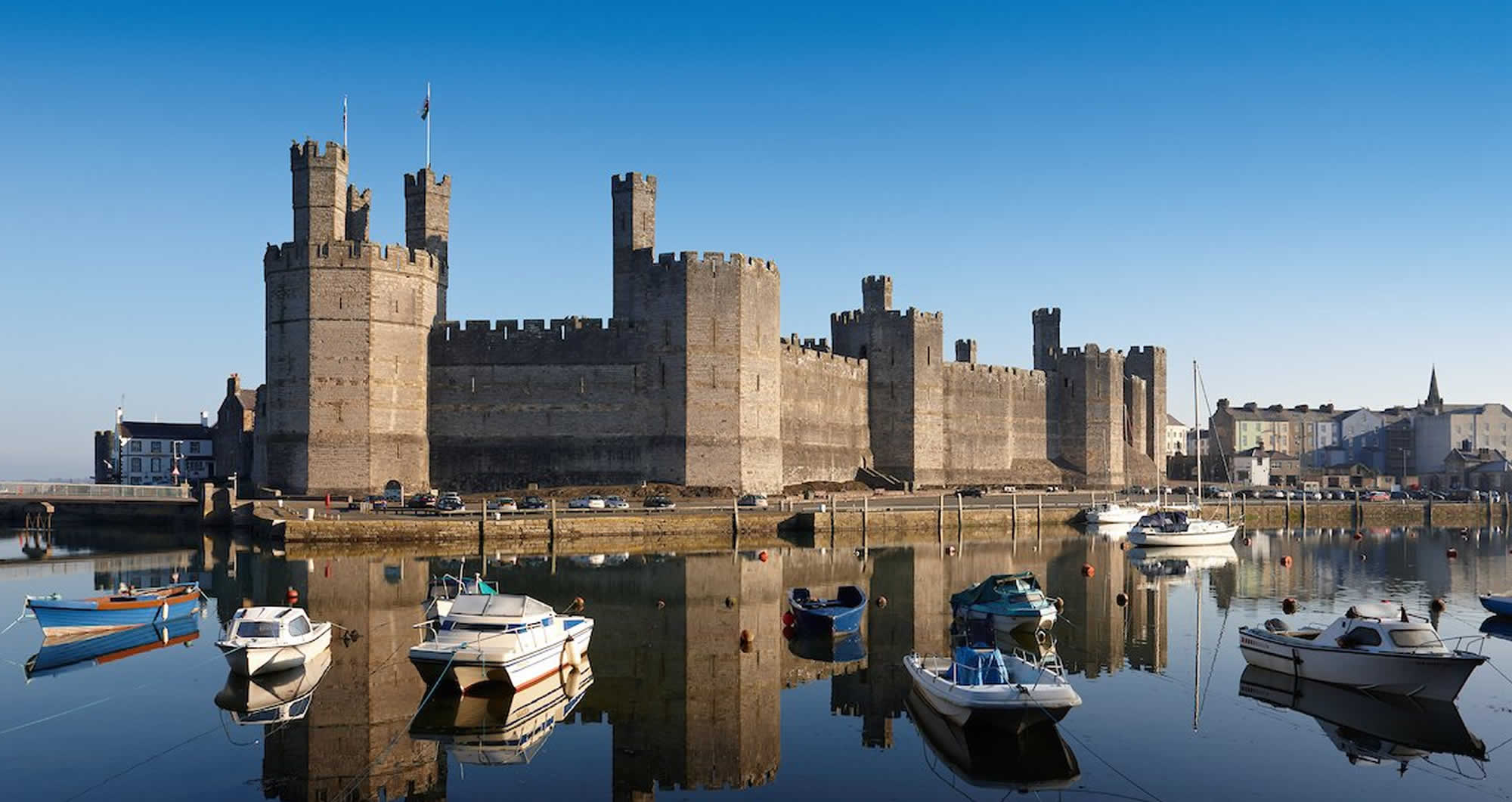
Caernarfon Caernarfon Castle North Wales Castles Attractions
The Royal Welch Fusiliers Museum is housed in two towers of Caernarfon Castle. In it you will find a wealth of original exhibits, supported by film, sound and models, which tell the story of over 300 years of service by Wales' oldest infantry regiment, in peacetime and in war, all around the world.. On the 1st March 2006 the two line Welsh.
Caernarfon Castle in Gwynedd, northeast Wales [2041x1361] r/castles
Exploring the captivating blend of rich history and imagination makes a visit to Welsh Caernarfon Castle a one-of-a-kind experience. A Site Steeped in History Construction on Caernarfon Castle began in 1283 under the direct orders of Edward I, who had ambition to establish a seat of English power in the region.
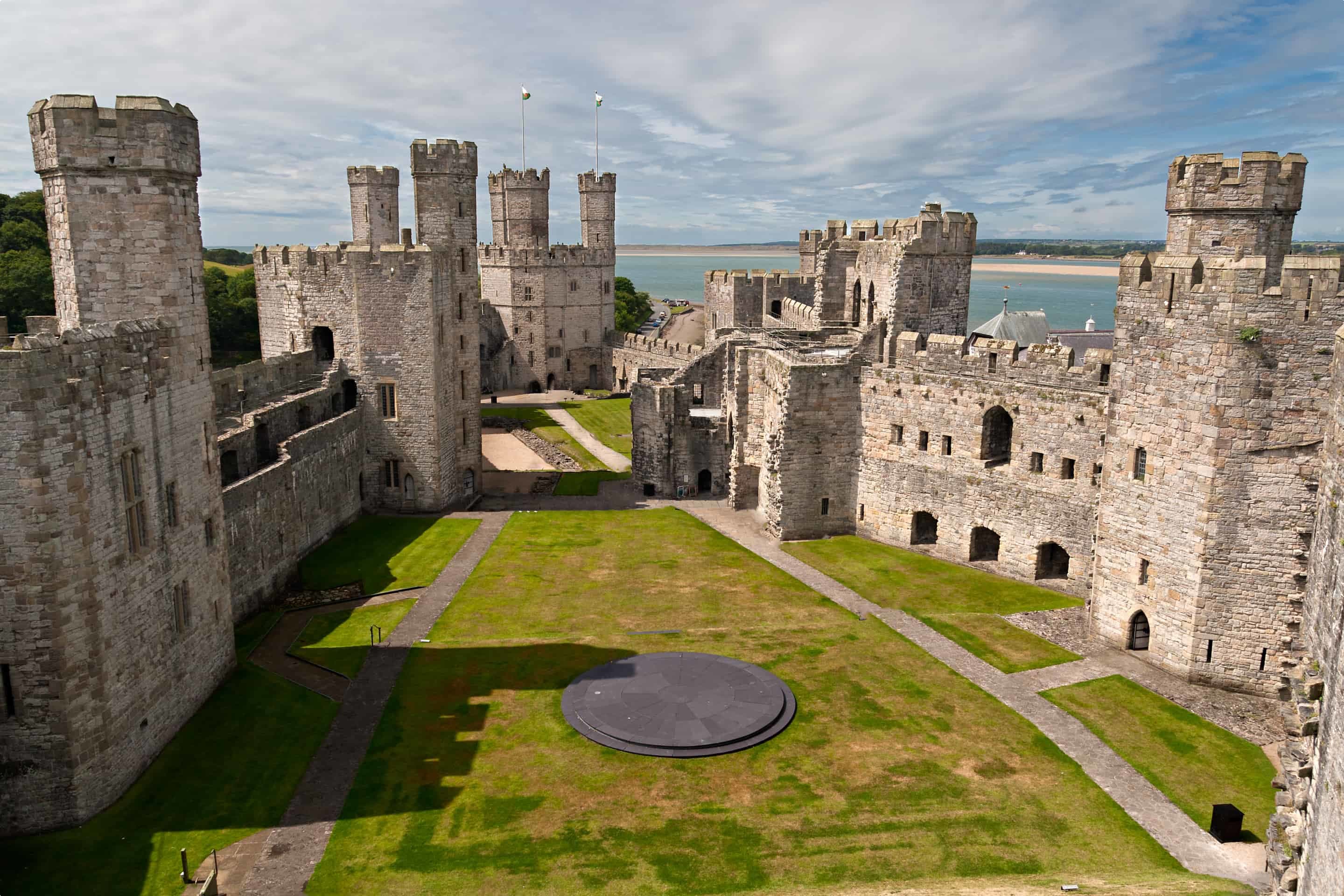
Caernarfon Castle Definitive article for seniors Odyssey Traveller
Criterion (iv): The castles and fortifications of Gwynedd are the finest examples of late 13th century and early 14th century military architecture in Europe. Their construction, begun in 1283 and at times hindered by the Welsh uprisings of Madog ap Llewelyn in 1294, continued until 1330 in Caernarfon and 1331 in Beaumaris.

Caernarfon Castle North Wales
Overview Royal fortress-palace built on legends and bitter medieval conflict Caernarfon Castle is recognised around the world as one of the greatest buildings of the Middle Ages. This fortress-palace on the banks of the River Seiont is grouped with Edward I's other castles at Conwy, Beaumaris and Harlech as a World Heritage Site.
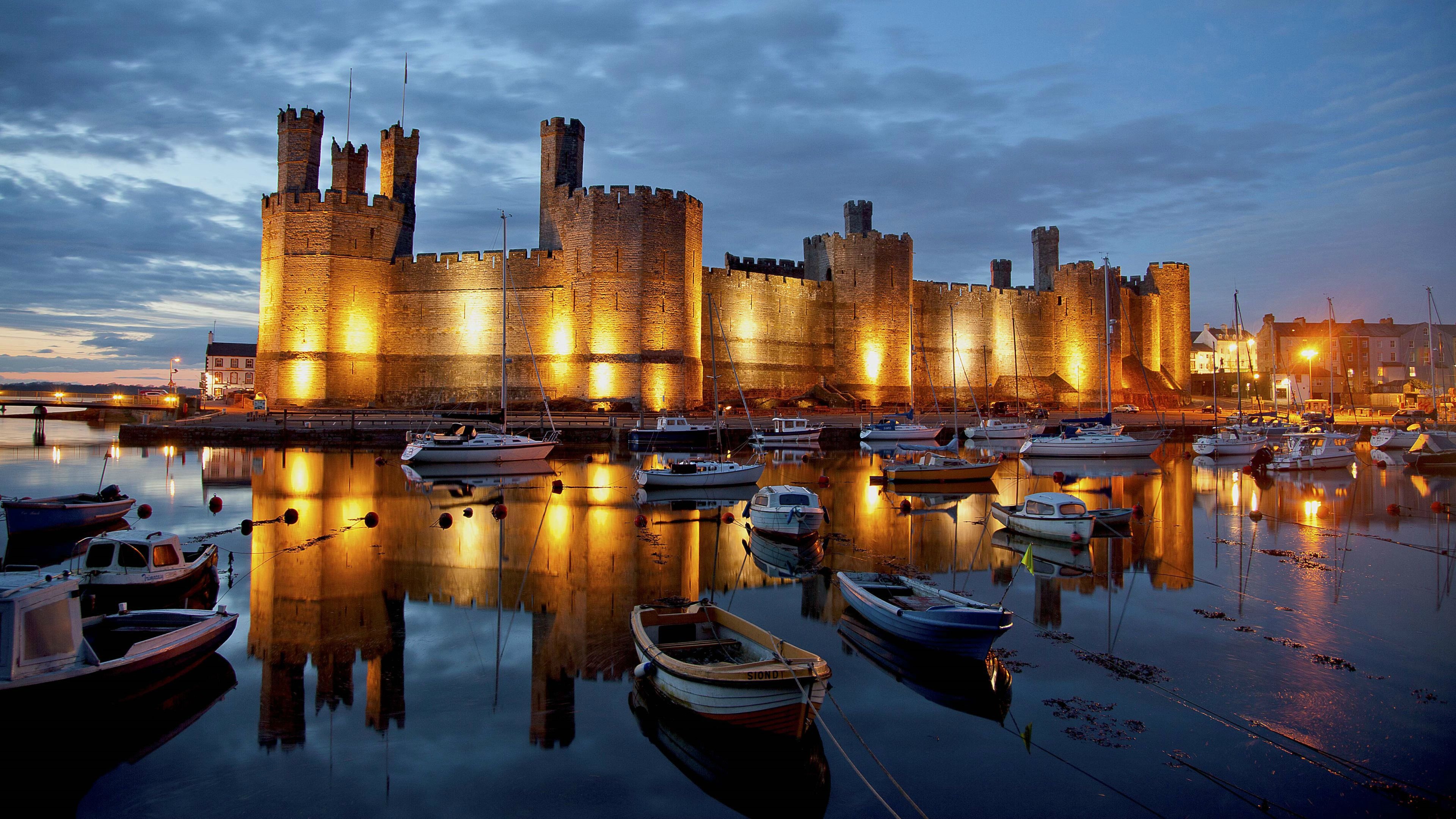
Caernarfon Castle 4K wallpaper
Caernarfon Castle is recognised around the world as one of the greatest buildings of the Middle Ages. This fortress-palace on the banks of the River Seiont is grouped with Edward I's other castles at Conwy, Beaumaris and Harlech as a World Heritage Site. But for sheer scale and architectural drama Caernarfon stands alone.

Welsh Castles 10 Best Welsh Castles To Visit
Caernarfon Castle (aka Caernarvon) is located in North Wales and was first built from 1283 CE by Edward I of England (r. 1272-1307 CE) to help, along with several other major castles, control the newly conquered area.
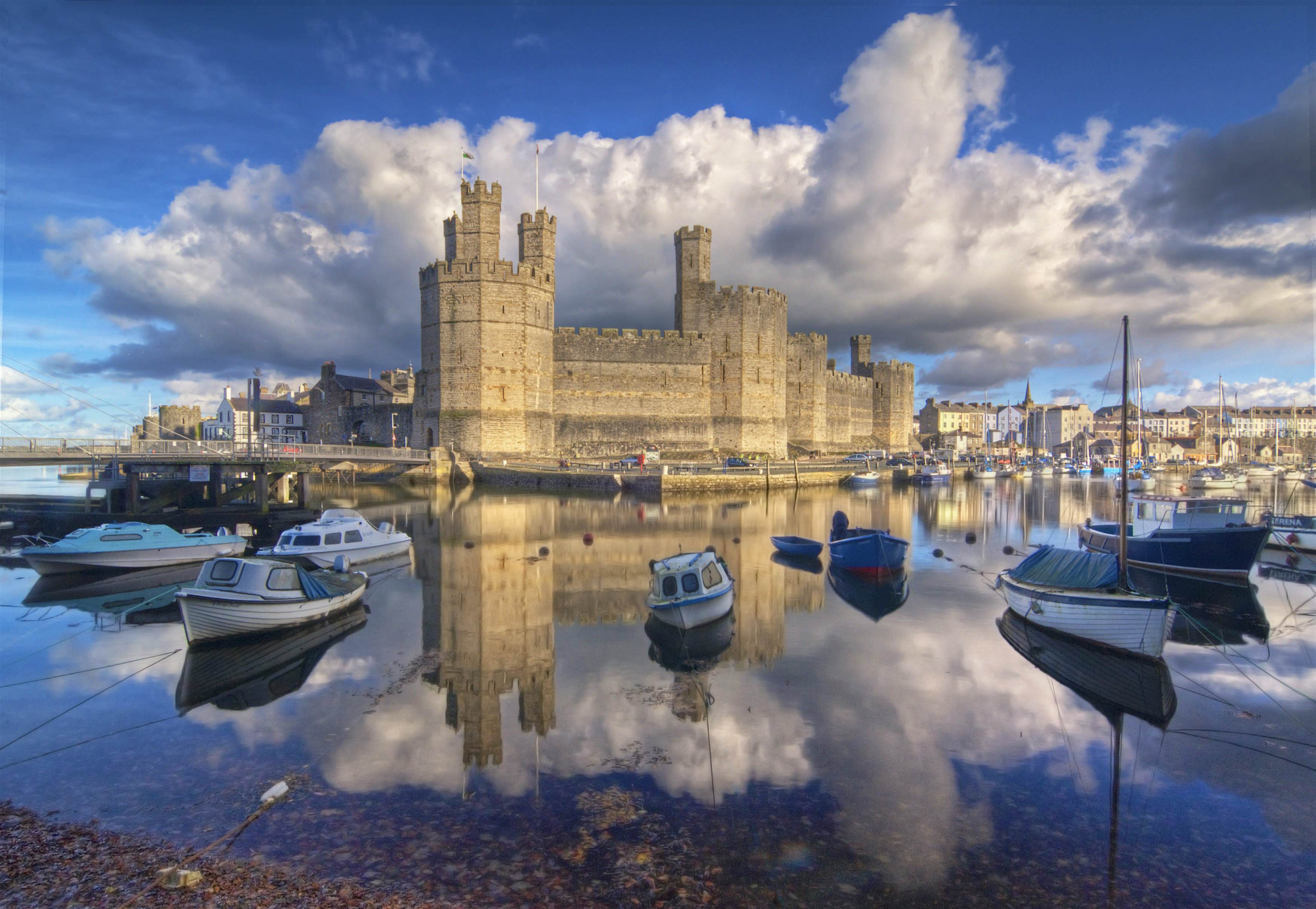
Why North Wales is the UK’s new mustvisit destination Lonely
Caernarfon is the administrative centre of Gwynedd and the historic county town (seat) of Caernarvonshire. Caernarfon (Carnarvon) Castle, Gwynedd, Wales. A Roman fort, Segontium, was built about 75 ce on a low hill southeast of the present town and was the seat of local chieftains after the Roman withdrawal ( c. 380-390).

Caernarfon Castle at Dusk Porthmadog Snowdonia & Wales
Caernarfon Castle is one of the great medieval castles of the world, part of the first UNESCO World Heritage Site in Wales and possibly the most famous of all landmarks in Wales. The Royal Town of Caernarfon is also one of the most impressive towns in Wales, and its superb town walls are also part of the World Heritage Site.

Caernarfon Castle Visit Snowdonia
The castle dominates the Menai Strait. In the uprising of 1294-1295, Caernarfon was besieged, but the garrison was supplied by sea and held out to be relieved in the spring of 1295. In 1403 and 1404 it withstood sieges by the forces of Owain Glyndŵr. During the English Civil War its Royalist garrison surrendered to Parliamentary forces in 1646.